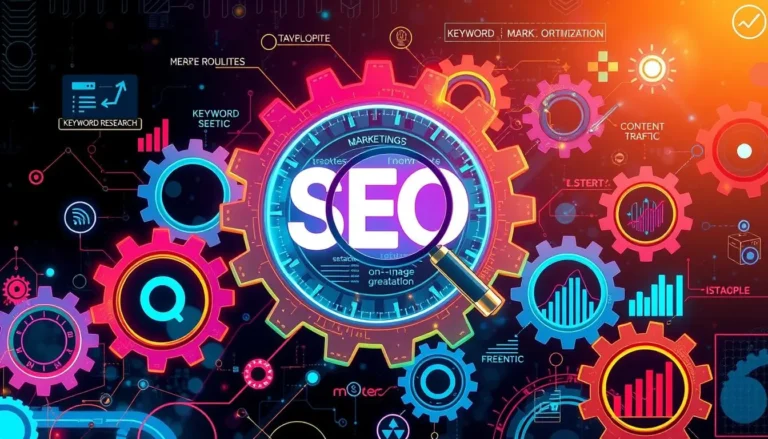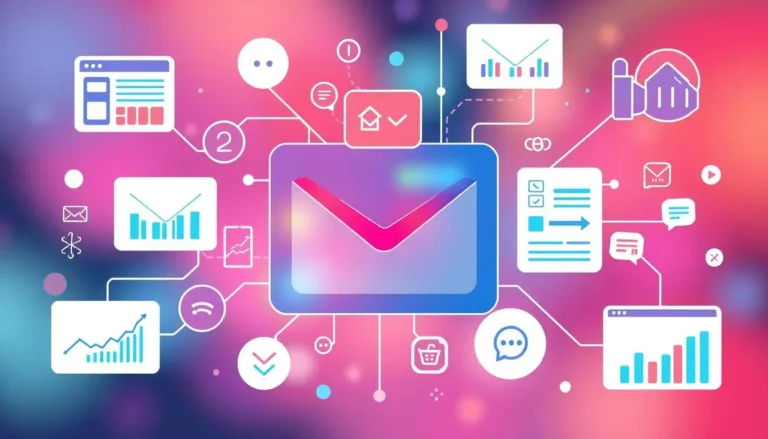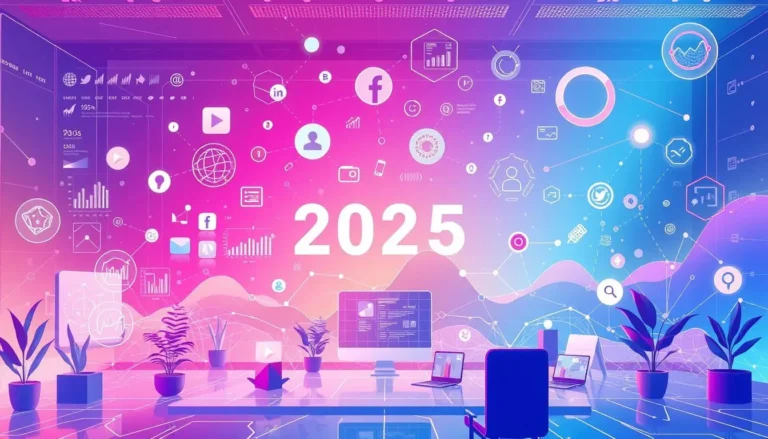What is a digital marketing ?Proven Strategies for Digital Marketing Success
Digital marketing changes how businesses talk to customers online. It’s a way to promote products and services using digital tools like websites, search engines, social media, and email. This approach helps businesses reach more people and grow their online presence.
Digital marketing allows companies to target specific demographics. It also lets them see how well their ads are doing in real-time. This means they can make changes quickly to get better results.
This is your guide to digital marketing. It’s about using different digital platforms to draw in, keep, and convert customers. Whether you’re a small business or a big company, digital marketing is key to growing your business.
Digital marketing is more than just ads. It uses data, psychology, and new tech to make marketing personal. In this manner, your advertisements communicate directly with your audience.
Getting digital marketing means seeing its impact on how brands connect with people. In today’s world, where everyone is connected, digital marketing is essential for building strong relationships with customers.
Understanding the Fundamentals of Digital Marketing
Digital marketing has transformed the way companies communicate with clients. It moved from old ways to new digital platforms. Now, businesses use many digital channels to reach and connect with people.
The basics of marketing stay the same, but how we do it has changed a lot. Businesses use digital tools to make experiences that were not possible before. These experiences are more personal and targeted.
The Digital Marketing Evolution Landscape
Digital marketing has made a big change. It enables companies to communicate with clients instantly. The main changes are:
- From one-way talk to two-way conversation
- Being able to see how well marketing works
- Creating experiences that fit each customer
- Marketing that doesn’t cost a lot
Key Components of Modern Digital Marketing
Your digital marketing plan should have several parts:
- Search Engine Optimization (SEO)
- Content Marketing
- Social Media Marketing
- Email Marketing
- Pay-Per-Click Advertising
“Digital marketing focuses not on technology but on engaging your audience in the most impactful manner.” – Marketing Specialist
The Digital Marketing Ecosystem
Getting the digital marketing ecosystem means seeing how all channels work together. Each platform has its own way to reach and talk to your audience. This makes a strong plan for marketing today.
By using these digital marketing basics, you can make plans that help your business grow. And also keep your customers interested in what you offer.
The Fundamental Components of Marketing in the Digital Era
Digital age marketing has changed how businesses reach their audience. Your marketing plan must mix old-school tactics with new digital methods. Knowing the key marketing elements is vital for success today.
The main parts of online marketing strategies have changed a lot. Today’s marketers need to focus on several important areas:
- Brand positioning in a digital world
- Finding the right target audience
- Creating strong value propositions
- Personalized customer experiences
- Engaging with customers in real-time
“In the digital age, marketing is no longer about telling a story, but creating an interactive experience.” – Seth Godin
Your digital marketing plan should rely on data. Knowing what customers do through advanced analytics helps make campaigns better and more focused.
| Traditional Element | Digital Age Transformation |
| Mass Marketing | Personalized Targeting |
| Static Content | Interactive Experiences |
| One-Way Communication | Multi-Channel Engagement |
Successful digital marketing means always being ready to change. The best strategies stay flexible, using new tech and understanding what customers want. Your marketing tools need to be up-to-date, embracing new ideas while keeping your brand’s core values.
Search Engine Optimization (SEO) in Digital Strategy
Digital marketing success relies on a strong SEO strategy. SEO boosts your online presence, connecting you with potential customers. It makes your site more visible in search results.
SEO is more than just tech; it’s a full digital marketing approach. It links your content with what users want. Knowing and using good SEO techniques is key to your site’s success.
On-Page SEO Techniques
On-page SEO helps your web pages achieve higher rankings and draw in more relevant visitors. Key strategies include:
- Crafting compelling, keyword-rich content
- Optimizing meta titles and descriptions
- Using header tags effectively
- Improving internal linking structure
Off-Page SEO Strategies
Off-page SEO goes beyond your website. It builds your site’s authority and trustworthiness:
- Building high-quality backlinks
- Engaging in strategic guest blogging
- Leveraging social media signals
- Creating shareable content
Technical SEO Fundamentals
Technical SEO ensures that search engines can locate and comprehend your website. Key elements include:
| Technical Aspect | Impact on SEO |
| Site Speed | Directly influences search rankings |
| Mobile Optimization | Crucial for Google’s mobile-first indexing |
| Secure HTTPS | Provides ranking signal and user trust |
“SEO involves collaborating with the system rather than manipulating it.” – Rand Fishkin
Creating a solid SEO strategy means always learning and updating. By mastering these basics, you can greatly boost your digital marketing results.
Social Media Marketing Platforms and Strategies
Social media marketing has changed how businesses reach out to people. Your online plan must include social media, as it’s key today. Each platform has its own way to help you connect with customers and grow your brand.
“Social media isn’t merely a pastime; it’s a commitment of precious time and resources.” – Sean Gardner
Good social media plans need a focused approach. Each platform wants different types of content and ways to interact. Knowing these differences can really boost your marketing.
- Facebook: Great for detailed content and finding specific groups
- Instagram: Best for sharing photos and videos that tell a story
- LinkedIn: The place for professional networking and B2B marketing
- Twitter: For quick updates and joining in on big conversations
- TikTok: Short videos for a younger crowd
Your success on social media comes from making content that truly connects with your audience. Maintain a uniform brand voice across every platform.
Also, use data to make your strategy even better.
Key Social Media Marketing Strategies
- Create content that fits each platform
- Always talk to your followers
- Use ads to reach more people
- Share content made by your followers
- Monitor the performance of your posts closely.
By using smart social media marketing, you can make your online presence stronger. You’ll also build real connections with your audience.
Content Marketing: Creating Value for Your Audience
Content marketing is a key strategy for businesses to connect with their audience. By making valuable content, you can gain trust, show your expertise, and engage with potential customers.
Good content marketing is more than just promoting. It’s about sharing information that really speaks to your audience’s needs and interests.
Types of Content that Drive Engagement
Numerous methods exist to capture your audience’s interest:
- Blog posts that offer deep insights
- Infographics that make complex data easy to see
- Video tutorials and explainer content
- Podcasts that dive into industry trends
- Interactive webinars and live streams
Content Distribution Channels
Getting your content out there is key. Here are some important channels:
| Channel | Best For | Engagement Potential |
| Social Media | Quick, shareable content | High |
| Email Newsletters | Targeted, personalized messaging | Medium-High |
| Company Blog | Comprehensive industry insights | High |
| Professional networking | Medium |
Measuring Content Performance
To make your content marketing better, track these important metrics:
- Engagement rate
- Conversion percentage
- Time spent on page
- Social media shares
- Return visitor rate
“Excellent content is the most effective sales instrument globally.” – Marcus Sheridan
By focusing on valuable content and sharing it across many channels, you can create a strong content marketing plan. This strategy will assist you in involving your audience and achieving your business objectives.
Email Marketing Campaigns and Automation
Email marketing is an effective method for companies to engage with their audience. Today’s marketing automation makes email campaigns smarter and more focused. This results in increased interaction and higher sales.
Good email marketing is more than just sending out newsletters. It needs careful planning and personal touches. These make sure messages match what each customer wants and likes.
- Build comprehensive email lists through opt-in strategies
- Develop targeted email campaigns based on user behavior
- Implement marketing automation tools for precision messaging
- Track and analyze email performance metrics
“The precise message sent to the appropriate recipient, precisely when needed” – Email Marketing Principle
Great email marketing uses advanced automation. These tools help businesses send messages that change based on how users interact with them.
| Automation Strategy | Key Benefits |
| Welcome Sequences | Immediate engagement with new subscribers |
| Behavioral Triggers | Personalized content based on user actions |
| Re-engagement Campaigns | Reconnect with inactive subscribers |
Your email marketing plan should aim to add value for your subscribers. Make your subject lines catchy, design emails that work on phones, and keep improving based on what your data shows.
Pay-Per-Click Advertising and Paid Media
Digital marketing has transformed the way companies interact with individuals. PPC advertising is a key way to get your site seen fast and by the right people.
Paid media is key in digital marketing. It lets you quickly reach potential customers on many platforms.
Google Ads Strategy
Google Ads is an effective platform for targeted advertising.
Success comes from a few important things:
- Precise keyword selection
- Compelling ad copy
- Strategic bidding techniques
- Continuous performance optimization
Social Media Advertising
Social media ads have changed marketing. They let you target very specific groups. Sites like Facebook, Instagram, and LinkedIn help you find the right people.
| Platform | Key Targeting Features | Best Use Cases |
| Detailed demographic targeting | B2C marketing | |
| Professional network targeting | B2B marketing | |
| Visual content engagement | Lifestyle and product marketing |
Display Advertising Networks
Display networks help you show ads on many sites. This boosts your brand’s visibility and can engage more people.
“Effective paid media strategies are about reaching the right audience at the right time.” – Digital Marketing Expert
When using PPC ads, aim for targeted campaigns. Google Ads and social media ads are great for getting the most from your marketing.
Influencer Marketing and Brand Partnerships
Digital marketing has changed how brands reach out to people through influencer marketing. This method uses social media stars to make real connections and boost engagement.
Influencer marketing is more than just ads. It uses trusted voices to build trust and credibility. Brands can connect with specific groups by working with content creators who know their audience well.
- Identify relevant influencers aligned with your brand values
- Develop collaborative content strategies
- Establish clear performance metrics
- Create mutually beneficial partnerships
“Influencers are the modern-day storytellers who bridge brands and consumers through genuine narratives.” – Marketing Insights Report
For successful partnerships, choose influencers wisely and work together well. Look for micro-influencers with active followers, not just big numbers.
| Influencer Tier | Followers | Engagement Rate | Brand Alignment |
| Micro-Influencers | 1,000-50,000 | 7-10% | High Niche Relevance |
| Macro-Influencers | 50,000-500,000 | 3-5% | Broader Reach |
| Mega-Influencers | 500,000+ | 1-3% | Mass Market Exposure |
Use advanced analytics to track your influencer marketing. Look at engagement rates, conversions, and audience feelings to improve your plans.
Analytics and Performance Tracking
Digital marketing success relies on knowing your data. Marketing analytics give you key insights. They turn numbers into strategies you can use. By tracking your marketing, you can make smart choices to move your efforts forward.
It’s not just about collecting data. It’s about knowing what it means for your business. Analyzing data shows you what’s working, what’s not, and where to improve in your digital marketing.
Key Performance Indicators (KPIs)
Choosing the right KPIs is key for tracking performance well. These indicators demonstrate whether your marketing efforts are effective:
- Conversion rate
- Customer acquisition cost
- Return on investment (ROI)
- Website traffic
- Engagement rates
Data Analysis Tools
Today’s marketing analytics use powerful tools to make data easy to understand. Here are some top tools for tracking your digital marketing:
| Tool | Primary Function | Best For |
| Google Analytics | Web traffic analysis | Comprehensive website insights |
| SEMrush | SEO and competitive analysis | Digital marketing strategy |
| HubSpot | Marketing automation | Integrated marketing tracking |
Reporting and Optimization
Good reporting turns data into actions. Regularly check your marketing analytics to spot trends, tweak strategies, and boost your campaigns.
“In God we trust. All others must bring data.” – W. Edwards Deming
Your digital marketing success comes from understanding and using your data. By getting good at marketing analytics and KPIs, you can keep improving your strategies and get better results.
Mobile Marketing and App Promotion
Mobile marketing is key in today’s digital world. Smartphones are everywhere, making mobile-first strategies a must for businesses. This ensures they stay ahead in the digital race.
Your mobile marketing should aim for smooth experiences on all platforms. Promoting apps needs a detailed plan, not just old-school marketing.
“Mobile is not just a device; it signifies a change in way of life.” – Digital Marketing Specialist
Key Mobile Marketing Strategies
- Optimize app store listings with compelling descriptions
- Develop targeted mobile advertising campaigns
- Create responsive design for multiple device types
- Implement personalized mobile messaging
Mobile User Engagement Metrics
| Metric | Importance | Benchmark |
| App Download Rate | User Acquisition | 20-30% conversion |
| User Retention | Long-term Engagement | 35-40% after 30 days |
| In-App Engagement | User Interaction | 25-45% daily active users |
Mobile marketing needs constant updates. Keep an eye on your app’s performance and user habits. This helps you stay on top in the digital world.
Using smart mobile marketing, you can boost your online presence. You’ll connect with users in new and better ways.
Conclusion
Digital marketing is changing how businesses reach their audience. Understanding the digital world is key for growing online. The strategies we’ve talked about will help you succeed in this digital age.
To stay ahead, you must keep learning and be open to change. Brands that use new tech and focus on customers will do well online. Your success depends on using different digital channels, analyzing data, and making engaging content.
The world of digital marketing is always changing. New tech like AI, voice search, and personalized marketing open up chances. Marketers who stay flexible, try new things, and connect with people in many ways will do best.
Your digital marketing journey is a path of discovery and creativity. Keep a strategic mind, use data to guide you, and explore new tech. This way, you can build a strong online presence that engages people and grows your business.
FAQ
What exactly is digital marketing?
Digital marketing employs online platforms such as search engines and social media to advertise companies. It helps connect with customers, build brand awareness, and drive sales. This is done through targeted online strategies.
How does digital marketing differ from traditional marketing?
Digital marketing offers real-time tracking and precise audience targeting. You can see how campaigns perform and adjust them quickly. It also lets you reach specific demographics with great precision.
What are the most important digital marketing channels?
Important channels include SEO, social media marketing, and email marketing. Content marketing, pay-per-click advertising, and influencer promotion are also essential. Each offers unique ways to engage with your audience and meet business goals.
How much does digital marketing cost?
Costs vary from free to thousands of dollars. Small businesses might spend $500-$2,500 monthly. Larger companies can invest $5,000-$20,000 or more, based on their goals and industry.
How long until digital marketing displays results?
Results depend on the strategy. SEO may require 4-6 months, whereas paid advertising can generate instant traffic. Content marketing needs 6-12 months to gain momentum. Consistency is key for success.
Do I need technical skills for digital marketing?
Some technical knowledge is helpful, but many tools are easy to use. You can learn the basics quickly. Online courses and resources can help you develop the skills you need.
How important is mobile marketing in digital strategies?
Mobile marketing is very important, as over 50% of web traffic comes from mobile devices. Your strategy must be mobile-friendly. Focus on websites, apps, and strategies that work well on smartphones.
What metrics should I track in digital marketing?
Track website traffic, conversion rates, and click-through rates. Also, monitor engagement, cost per lead, return on ad spend, and customer acquisition cost. These indicators demonstrate the effectiveness of your marketing efforts.
How often ought I to update my digital marketing strategy?
Update your strategy every quarter. The digital landscape evolves rapidly, driven by emerging technologies and shifting consumer habits. Regular reviews keep your strategies effective and competitive.
Is digital marketing appropriate for all kinds of businesses?
Yes, digital marketing can work for any business. It’s important to understand your audience and choose the right channels and strategies for your market.







